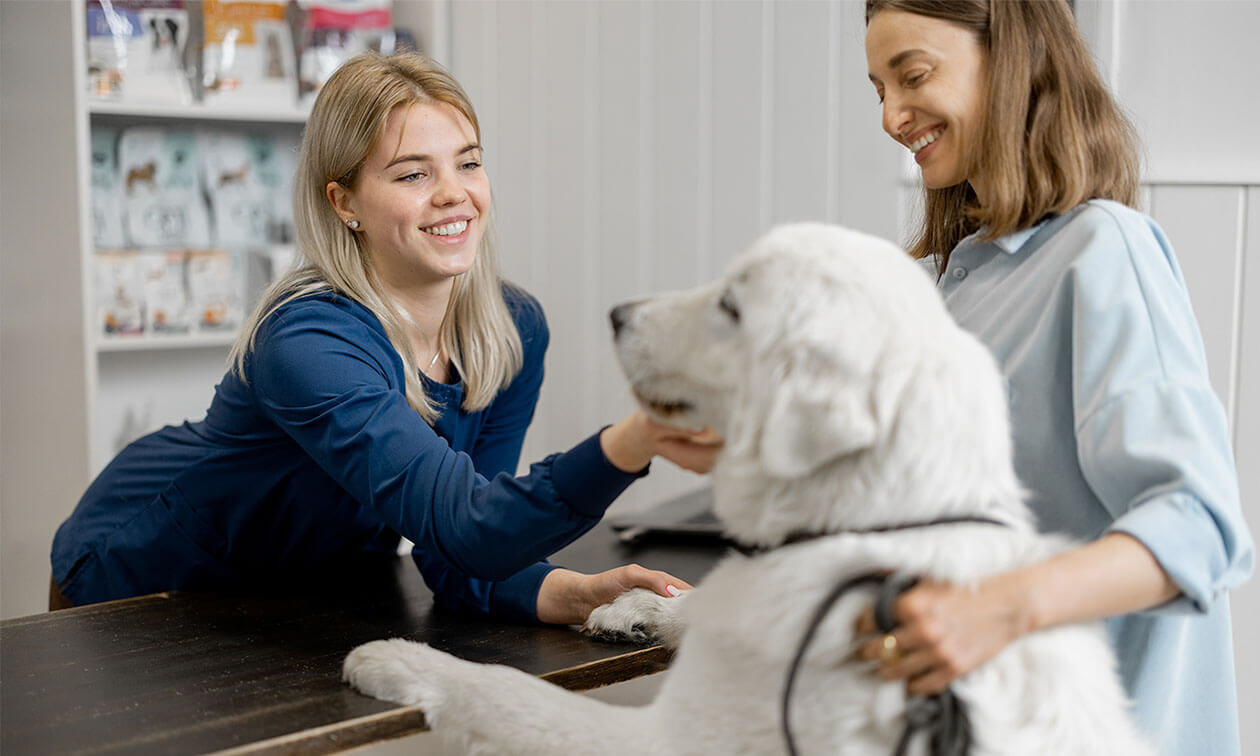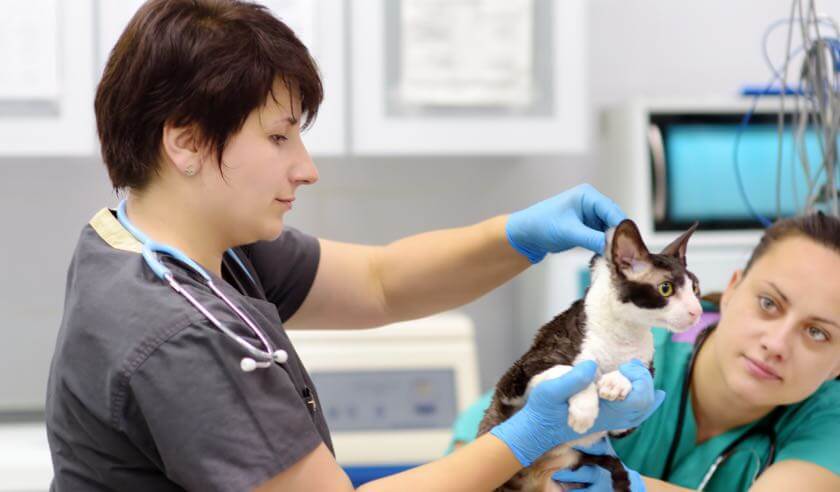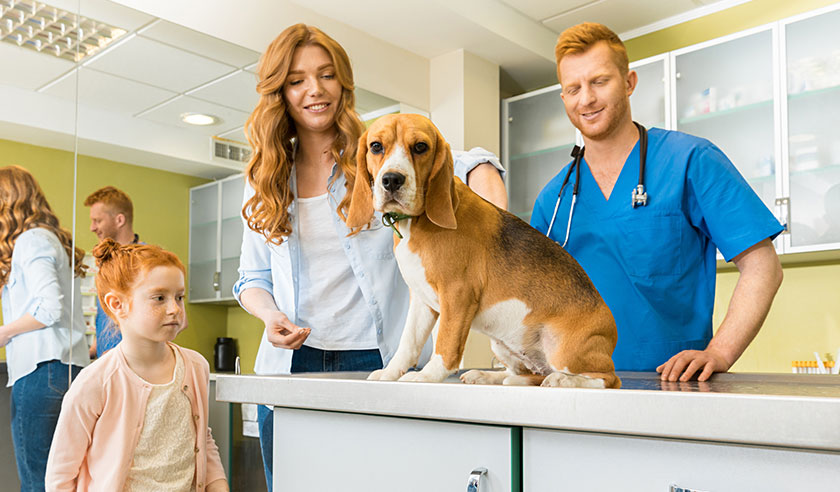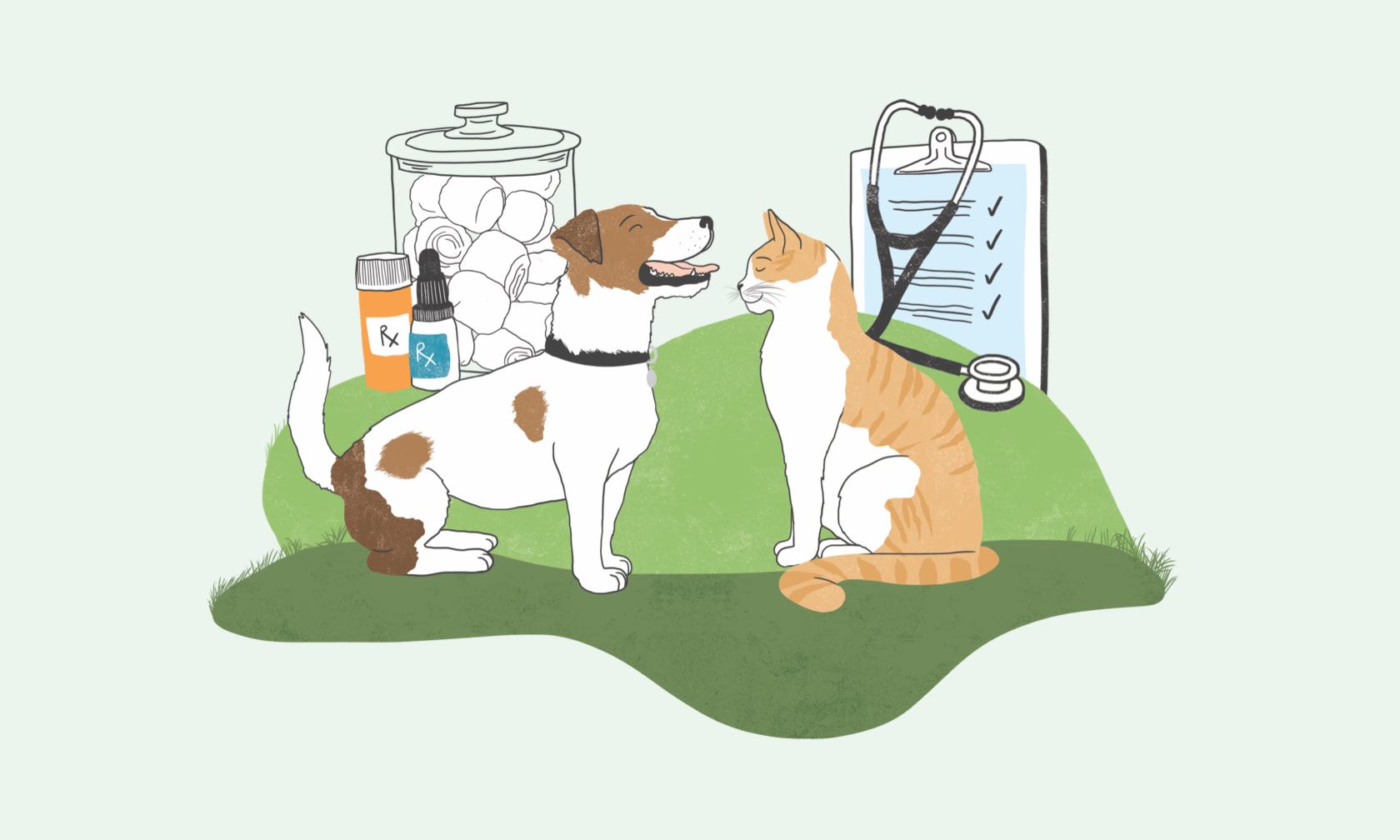Choosing a veterinarian for your pet is just as important as choosing a doctor for yourself. Finding a veterinarian and clinic where you and your pet feel comfortable and cared for provides peace of mind. Knowing you have a caring veterinary team for support if your pet gets injured or falls ill reduces stress.
There are many different types of small animal veterinary practices. There are many types of veterinary specialists for when your pet is sick or having specific health problems, but most of your pet’s veterinary care will be done by a general practice veterinarian Let’s look at things to consider when choosing a veterinarian. It is important to think about what qualities are most important to you and find a veterinarian that will help you meet your pet health goals.
Different Types of Veterinarians
Most general practice small animal veterinarians will be able to provide routine healthcare exams and treat your pet when they are sick or need surgery. This allows for more efficient visits since many of the services and procedures can be performed in one location by the same care team. This allows for faster diagnosis, implementation of treatment, and less stress for you and your pet.
That there are veterinarians who specialize just in caring for cats. This may be a service to be considered since cats can have unique medical diseases. They are often called feline practitioners or feline-only veterinarians. In addition to their feline expertise, the stressor of dog sounds and smells isn’t a concern in these clinics which can be beneficial for especially fearful cats.
In cases where your pet may need more advanced care or surgery, above and beyond that which your regular veterinarian may be able to offer, there are veterinary specialists and emergency veterinarians. A veterinary specialist receives advanced education and training in a particular clinical field of veterinary medicine (cardiologist, ophthalmologist, dermatologist, surgery, internal medicine). Their expertise helps ensure the best outcome for your pet.
How to Find the Right Veterinarian for You and Your Pet
- Ask around. Ask your family and friends what veterinarian they use. Reach out to local pet-focused social media groups or grooming and training facilities to see what clinics they may recommend. Be sure to ask why these people recommend a certain veterinarian to make sure they algin with what you needing. Create a list of these recommendations so you can research them further.
- Do your research. Check out the clinic website for more information. Look for what professional accreditations and memberships the veterinary clinic and veterinary staff have. If you’re looking for a specialist for a particular medical issue, is the veterinarian board-certified in that specialty? Does the veterinarian’s treatment philosophy match what you’re comfortable with? Do they practice traditional, natural, or alternative veterinary medicine? Do they focus on preventative care? What are their hours and appointment scheduling procedures? How long are appointments? You can also see if they’ve been awarded any honors, such as community favorites or “best of” lists.
- Check reviews. See if the clinic has reviews on its website, social media channels, or other local review sources.
- Ask to visit the clinic without your pet. Do not just show up at a veterinary clinic without first calling to find out when is most convenient for them and if a visit like this is possible. Especially since the COVID-19 pandemic, the veterinary industry has been overloaded. A pre-approved visit means you’ll likely have a chance to ask front desk staff questions and won’t cause additional stress to patients in the waiting room. While you’re there, you can see how clean the clinic is and watch how the staff interacts with their animal patients and human clients in the waiting room. You can also ask about pricing and see if they have any wellness plans.
- Ask about the experience. Talk with someone from the veterinary team about their approach when working with fearful or aggressive pets. Do they allow time for the pet to decompress before beginning the exam or spend a few minutes doing some positive bonding with them? Can they give extremely fearful pets special considerations, like examining them in the carrier when possible or limiting testing to the essentials if your pet is particularly stressed during the visit? How would they handle your pet if they become aggressive due to fear? Do they offer victory visits or other opportunities for you to come in with your pet when they aren’t being examined to help get them comfortable with the clinic and start building positive associations?
- Get the full picture. Determine if the clinic can provide all the medical care (after-hours care, hospitalization, drop-off appointments, in-house diagnostics) as well as extended services such as boarding, daycare, or grooming you want to have for your pet. A lot of practices will refer to local emergency hospitals and specialists. Ask who they use in the area.
- Ask about additional resources. Do they offer any pet owner education programs or have discount programs with local trainers and other educators?
- Make an appointment and see how you feel. If you feel comfortable after researching and visiting the clinic, make an appointment for a first visit with your pet. A wellness visit is a great first step, even if your pet is healthy. This allows you to see how they interact with your dog or cat, the time they take, etc. And you can see how your pet responds to their environment and handling. It is important to have a good relationship with your veterinarian and make sure you are comfortable asking them questions about your pet’s health.
Not every veterinarian is right for every pet and pet owner. Make a list of what is most important to you and your pet and find a veterinary practice that meets your needs.
ZPC-02558





